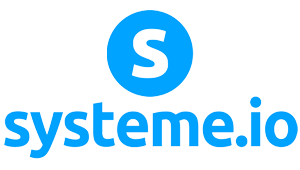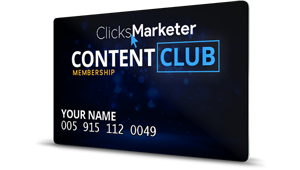Building strong citations is a major factor in how a business shows up on Bing’s local search results. Citations boost a company’s authority and can nudge it up the rankings in Bing Local.
When your business details are consistent across trusted sources, Bing has a much easier time verifying your profile—and that can mean better visibility.

A lot of businesses kind of gloss over Bing when thinking about local SEO, but honestly, there’s still plenty of good traffic and conversions to be had here. Citations basically act as little signals that confirm your business is legit, and if you skip them, even a super-optimized profile might just languish in obscurity.
Let’s dig into what citations actually are, why they matter for Bing Local, and how you can build and manage them without losing your mind. We’ll cover where to get listed, some advanced tricks, and practical steps that’ll help you stand out locally.
Understanding Citations for Bing Local SEO

Citations are just references to your business details scattered across the web. They help Bing—and other search engines—figure out if you’re the real deal, which bumps up your local search visibility and trust.
What Are Local Citations
Local citations are any mentions of your business’s key info—Name, Address, and Phone number (NAP)—on online platforms. You’ll spot these in business directories, review sites, social media, or even local news.
Search engines use these mentions to double-check your business data and measure how authoritative you are. When your details match everywhere, Bing is a lot more confident you’re legit.
Citations also tie your business to a specific place. If a restaurant keeps popping up in city directories, Bing figures it’s actually serving that area.
A solid citation profile makes it way easier for potential customers to find up-to-date info about your business. Plus, consistency across platforms keeps confusion—and skepticism—at bay.
Types of Citations: Structured vs. Unstructured
Structured citations show up in formal listings—think online directories, Google Business Profile, Bing Places, Yelp, or Yellow Pages. These listings usually have neat fields for each bit of info.
Unstructured citations are more casual. You’ll find them in blog posts, local news, or social media. They might not follow a tidy format, but if your business details are clear, they still count.
You really need both: structured citations give search engines the cold, hard facts, while unstructured ones show you’re active in the community.
| Citation Type | Example Platforms | Format Style |
|---|---|---|
| Structured | Bing Places, Yelp, Yellow Pages | Standardized fields |
| Unstructured | Local blogs, news articles, forums | Free-form text |
Mixing both types gives you a well-rounded citation profile that helps with search engine optimization and those all-important local rankings.
Role of NAP Consistency in Citations
NAP consistency is just making sure your business name, address, and phone number look exactly the same everywhere. Even tiny differences—like “Ave.” vs. “Avenue” or an old phone number—can mess things up for Bing.
If your NAP isn’t consistent, search engines might think you’re two different businesses. That’s a fast track to lower visibility.
Keeping your NAP the same across all listings lets Bing see all those mentions as one business—you.
Most businesses run audits to spot mistakes, fix old info, and keep an eye out for errors. Staying on top of this boosts your local SEO and your odds of ranking higher in Bing’s results.
The Impact of Citations on Bing Local Rankings

Citations are a big part of how Bing figures out if you’re relevant and credible locally. When your listings are accurate and consistent, you’re way more likely to show up in competitive markets.
How Citations Influence Local Search Results
Bing checks citations to confirm your business’s identity and relevance. If your NAP shows up the same way across a bunch of directories, Bing trusts your info more.
Consistency actually beats quantity. Ten rock-solid, matching citations can easily outperform fifty sloppy, inconsistent ones. Conflicting details just confuse Bing and drop you down the local rankings.
Citations also help with keyword relevance. Listings that mention your services, categories, and location make it easier for Bing to connect your business to local searches—like “plumbing services in Dallas.”
Authority and Trust Signals for Bing
Citations work as trust signals. Bing looks at where your citations are coming from—big, respected directories and industry-specific sites get more weight than random, low-quality ones.
Sites like Yelp, Yellow Pages, and the Better Business Bureau are big wins for citation authority. Bing sees these as solid endorsements.
Keeping your data accurate everywhere reduces the risk of misinformation. Bing likes to see businesses that are reliable, and that factors into where you rank.
Citations and the Bing Local Map Pack
Citations help decide who makes it into Bing’s Local Map Pack—the little box of featured businesses on the map. Since only a few spots are up for grabs, Bing uses citation accuracy and authority to pick the best options.
If your citations are consistent across trusted sources, you’re much more likely to land a spot in the Map Pack. That means more clicks and direct calls.
Some things that really matter for Map Pack placement:
- NAP consistency in all directories
- Relevant categories and descriptions
- Authority of the citation source
Stay on top of your citations and you’ll have a better shot at showing up in Bing’s local results—and the coveted Map Pack.
Essential Citation Sources for Bing
Getting your citations right boosts your Bing presence by confirming your info across trusted platforms. Consistency in your listings means more visibility and credibility, plus it helps Bing Places verify you’re real.
Top Business Directories for Bing
The big directories are your foundation for local search. Platforms like Yelp, Yellow Pages, and Apple Maps are all checked by Bing, so you can’t really skip them. Each lets you list your basics: name, address, phone, website.
Focus on directories with high authority and wide reach. Claiming your Bing Places listing is non-negotiable—it feeds directly into Bing’s local results.
Here’s a quick checklist:
- Claim and verify your Bing Places listing
- Make sure details are up to date on Yelp, Yellow Pages, and Apple Maps
- Use the exact same format for your business info everywhere
Industry-Specific and Local Directories
After you’ve hit the big ones, look at industry-focused and local directories. For example, Tripadvisor is a must for hotels and restaurants, while healthcare businesses need to be on medical directories. These niche sites carry a lot of weight in their sectors.
Don’t ignore local directories or your city’s chamber of commerce. Bing uses these to check if you’re actually legit in your area.
Getting mentioned in local blogs or regional business associations can help too. They might not have massive reach, but they definitely boost your local relevance and trust with Bing.
Leveraging Review Sites and Social Media
Review sites and social media pull double duty. Places like Yelp and Tripadvisor not only give you structured data, they also sway customers’ decisions. Bing often shows ratings and reviews right in search, so these platforms are highly visible.
Social media profiles—think Facebook, LinkedIn, and the like—also count as citations. They’re not traditional directories, but they do confirm your business identity and contact info.
Keep your info current on review sites and social media. That means monitoring profiles, responding to reviews, and updating your contact details whenever things change.
Building and Managing Your Citation Profile
A strong citation profile is all about accuracy, consistency, and keeping control. If you keep your info correct everywhere, you’ll avoid confusion, build trust, and show up more in Bing’s local search.
Citation Audits and Cleanup
Start with a solid SEO audit of all your business listings. Hunt down errors in your NAP, spot outdated or incomplete records, and weed out inconsistencies.
Cleanup means fixing wrong info and getting rid of listings on sketchy or irrelevant directories. Put your energy into authoritative local listings like Bing Places, Yelp, and those industry-specific sites.
A cleanup checklist might look like this:
- Gather all your current citations
- Compare each one to your official business info
- Fix or remove anything that’s off
Regular audits keep your citation profile fresh and accurate.
Creating Accurate and Complete Listings
Accuracy and completeness are everything here. Each listing should have matching NAP details, your website, hours, and business categories. Missing or outdated info can tank your credibility and your Bing visibility.
When you’re making new listings, stick to standardized formatting everywhere. If you abbreviate “Street” as “St.” in one place, do it everywhere. Throw in extra details—photos, services, descriptions—when you can.
A quick checklist:
- Full legal business name
- Exact street address (suite numbers too)
- Main phone number
- Categories and a short description
- Website and social links
Uniform, complete listings make it easy for Bing to trust and rank you.
Avoiding Duplicate Listings
Duplicate listings are just a headache. They confuse search engines and customers alike. If Bing finds multiple entries for your business, it might not know which one is right, which can dilute your ranking signals.
Scan for duplicates regularly. Tools like Moz Local or BrightLocal make this a lot easier.
To fix duplicates:
- Claim both listings and merge if you can
- Ask for outdated or incorrect entries to be removed
- Make sure there’s only one verified listing per location
Keeping things tidy means Bing will always find—and trust—the correct info.
Optimizing and Monitoring Citation Performance
Citations only help if you keep tabs on them. If you track performance, use the right tools, and keep your NAP consistent, you’ll build stronger local visibility and dodge most ranking issues.
Tracking Citation Impact with Analytics
You’ve got to link citation work to real results. Tools like Google Analytics show you referral traffic from directories, while Bing Webmaster Tools can highlight changes in your search visibility.
Watch metrics like:
- Referral traffic from citation sources
- Local search impressions and click-throughs
- Conversions from directory visits
Set up UTM parameters for your citation links to see which directories actually bring in traffic. Maybe Yelp is a goldmine, while Yellow Pages just sits there.
Reporting regularly helps you spot underperformers early, so you can focus on the platforms that actually move the needle.
Utilizing Citation Management Tools
Citation management tools make it way easier to create, update, and keep an eye on your listings across the web. Platforms like BrightLocal, Yext, Moz Local, and Whitespark help you stay accurate and track results in one place.
Handy features include:
- Bulk updating your business info
- Spotting and removing duplicate listings
- Automated performance reports
Yext, for example, pushes updates to tons of directories instantly, while BrightLocal gives you detailed audit reports on accuracy and coverage. Less manual work, fewer mistakes.
Pick your tool based on your business size, budget, and how many directories you’re targeting. If you’ve got a bunch of locations, automation is a lifesaver. Smaller businesses might just need something simple and affordable.
Maintaining Ongoing NAP Consistency
NAP consistency is always at the core. If your name, address, or phone number doesn’t match everywhere, search engines get confused and your local trust takes a hit.
To keep things straight:
- Audit listings every few months
- Standardize formatting (like “St.” vs. “Street”)
- Update citations right away if anything changes
Even little things, like using a different phone number for call tracking, can mess with your authority. Have a process for updating NAP data so Google, Bing, and every directory recognize you as reliable.
Staying consistent not only helps rankings—it reassures customers, too. No one likes finding different info in different places.
Advanced Strategies to Boost Bing Local Authority
If you want to really boost your Bing local authority, line up your citation tactics with your bigger SEO game plan. Get links from credible directories, encourage customer feedback, and keep stacking those trust signals. That’s how you’ll climb the search results and get noticed locally.
Integrating Citations with Local SEO Strategy
Citations really shine when they’re woven into a solid local SEO plan. If your Name, Address, and Phone (NAP) details are consistent across Bing Places, Google Business Profile, and other directories, search engines are a lot more likely to trust you.
But even tiny slip-ups in your info? They can chip away at your credibility and drag down your rankings. It’s wild how picky these algorithms can be.
You’ll want to sync up citation updates with what’s actually on your site. Say your Bing Places categories match your website’s main services—that’s a win for relevance.
And hey, don’t forget about structured data markup. Tossing in LocalBusiness schema can really help tie it all together for search engines, even if it feels a little technical at first.
Keeping tabs on online mentions is smart, too. If you’re monitoring where your brand pops up, you’ll spot errors faster and see where you’re missing out on citations that could boost you on Bing or Google My Business.
Building Backlinks from Citation Sources
Not every citation source is created equal. Some directories let you add a backlink to your site, and those are worth their weight in gold.
A backlink from a respected local chamber of commerce? That’s basically a big thumbs up to Bing, and it could nudge your rankings higher.
It’s a good idea to zero in on industry-specific and regional directories. They tend to bring in visitors who actually care about what you offer and help cement your local presence.
When you’re filling out these listings, don’t skimp—add descriptions, images, and of course, your links.
And if you’re curious about which directories actually send you visitors, tracking referral traffic is a no-brainer. Here’s a quick snapshot:
| Directory | Backlink Type | Referral Visits | Authority Value |
|---|---|---|---|
| Yelp | DoFollow | High | Strong |
| Local Chamber | DoFollow | Moderate | Strong |
| Yellow Pages | NoFollow | Low | Moderate |
It’s honestly pretty satisfying to see where your efforts are paying off.
Encouraging Customer Reviews
Customer reviews carry serious weight—they shape rankings and, honestly, whether folks trust you at all. Bing and Google Business Profile listings with lots of glowing, recent reviews tend to grab more clicks and, yeah, even get people through the door.
Reviews aren’t just for show. They actually count as fresh content, which search engines seem to love.
He should ask for reviews right after finishing a job. Sending a direct link to the Bing or Google My Business profile? That’s a lifesaver for customers.
Timing’s everything. If you ask while the good vibes are still fresh, people are way more likely to follow through.
Responding to reviews is huge for building authority. Whether the feedback is good or, well, not so great, acknowledging it shows you’re paying attention.
This kind of engagement can really boost your local reputation. It even backs up the credibility of your citation sources.
Keeping an eye on reviews helps make sure things stay fair and authentic. Over time, this steady stream of feedback just keeps building your local authority—and, hopefully, bumps you up in Bing search results.



